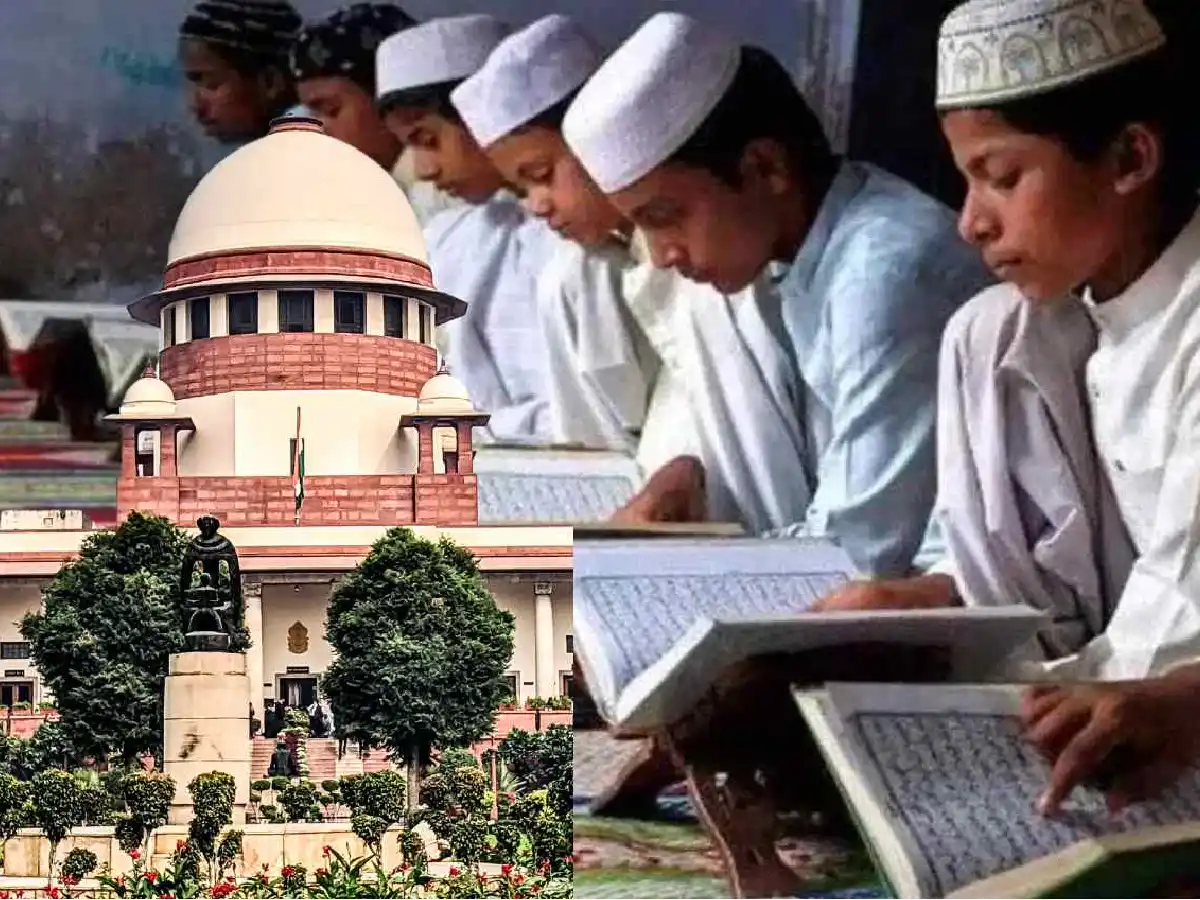On Tuesday, there was a significant ruling made by the Supreme Court. The constitutional validity of the Uttar Pradesh Board of Madarsa Education Act, 2004 has been affirmed in the ruling. In the process, the Supreme Court invalidated the previous judgment issued by the Allahabad High Court on this matter. The High Court ruled that this Act goes against the tenets of secularism. However, the Supreme Court halted the High Court’s decision in April of this year until a verdict was reached on the Madrasa Act’s validity.
Numerous political parties have also responded to this ruling by the Supreme Court. This choice will impact hundreds of thousands of students enrolled in Madarsas.
The Madarsa Act establishes legal regulations for Madarsa education. In addition to teaching the NCERT syllabus, religious education is also provided in Madarsas. The Uttar Pradesh Madarsa Education Board was established according to this Act, predominantly comprising individuals from the Muslim community.
An attorney disputed the Madarsa Act in the Supreme Court, alleging that it infringed upon Articles 14, 15, and 21-A of the Constitution. The lawyer stated in the petition that the Madarsa Act is not delivering quality education and students in madrasas are not receiving a good education.
The UP government informed the Supreme Court that they believe the law is constitutional and only the objectionable parts should be reviewed instead of a complete repeal.
The Supreme Court decision upheld the Madarsa Act but revoked provisions giving the Uttar Pradesh Madarsa Education Board authority to grant Fazil and Kamil degrees. The court ruled that granting advanced degrees is unlawful as it goes against the regulations of the University Grants Commission, 1956.
According to a bench consisting of CJI DY Chandrachud, Justice JB Pardiwala, and Justice Manoj Mishra, the Madarsa Act is within the state legislature’s jurisdiction, but awarding Fazil and Kamil degrees conflicts with Section 22 of the UGC.
The Supreme Court bench stated that questioning the constitutionality of a law is not valid solely based on it violating the fundamental principles of the Constitution. The highest court stated that the High Court was incorrect in assuming that if a law goes against the basic structure of the Constitution, it must be abolished.
According to the Supreme Court’s ruling, the state has the authority to oversee education standards including curriculum development, teacher qualifications, student health, cleanliness, and library facilities. The court endorsed the Madarsa Act provisions and acknowledged the improvement in student education at recognized Madrasas. Due to this reason, students have the opportunity to participate in exams held by the Madarsas Education Board.
The court stated that the Madarsa Act safeguards the minority community’s interests in Uttar Pradesh by overseeing the quality of education offered by approved Madarsas, administering exams, thereby ensuring students receive a higher quality of education. The main objective of Madarsas is to offer education, even though they also provide religious teachings as per the Supreme Court.

